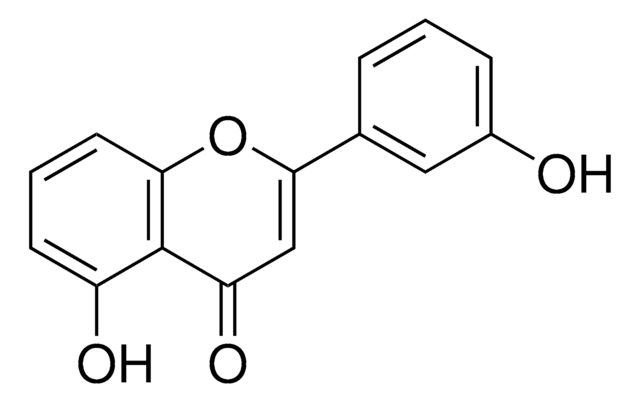SML1886
VPC-13566
≥98% (HPLC)
Synonym(s):
2-(7-Methyl-1H-indol-3-yl)quinoline
Sign Into View Organizational & Contract Pricing
All Photos(1)
About This Item
Empirical Formula (Hill Notation):
C18H14N2
CAS Number:
Molecular Weight:
258.32
UNSPSC Code:
51111800
NACRES:
NA.77
Recommended Products
Quality Level
Assay
≥98% (HPLC)
form
powder
color
white to beige
solubility
DMSO: 20 mg/mL, clear
storage temp.
2-8°C
SMILES string
CC1=CC=CC2=C1NC=C2C3=NC4=CC=CC=C4C=C3
Biochem/physiol Actions
VPC-13566 is Binding Function 3 (BF3)-specific inhibitor of the androgen receptor. VPC-13566 potently inhibits AR transcriptional activity by displacement of the BAG1L peptide from the BF3 pocket. VPC-13566 inhibits the growth of various prostate cancer cell lines including an enzalutamide-resistant cell line and inhibits the growth of AR-dependent prostate cancer xenograft in mice.
Storage Class Code
11 - Combustible Solids
WGK
WGK 3
Flash Point(F)
Not applicable
Flash Point(C)
Not applicable
Certificates of Analysis (COA)
Search for Certificates of Analysis (COA) by entering the products Lot/Batch Number. Lot and Batch Numbers can be found on a product’s label following the words ‘Lot’ or ‘Batch’.
Already Own This Product?
Find documentation for the products that you have recently purchased in the Document Library.
Customers Also Viewed
Teresa Delgado-Goni et al.
Molecular cancer therapeutics, 15(12), 2987-2999 (2016-10-22)
Understanding the impact of BRAF signaling inhibition in human melanoma on key disease mechanisms is important for developing biomarkers of therapeutic response and combination strategies to improve long-term disease control. This work investigates the downstream metabolic consequences of BRAF inhibition
Nada Lallous et al.
Genome biology, 17, 10-10 (2016-01-28)
The androgen receptor (AR) is a pivotal drug target for the treatment of prostate cancer, including its lethal castration-resistant (CRPC) form. All current non-steroidal AR antagonists, such as hydroxyflutamide, bicalutamide, and enzalutamide, target the androgen binding site of the receptor
Eui Hyun Kim et al.
Journal of molecular endocrinology, 63(3), 175-185 (2019-08-14)
Oxidative stress (OS) is a major problem during in vitro culture of embryos. Numerous studies have shown that melatonin, which is known to have antioxidant properties, prevents the occurrence of OS in embryos. However, the molecular mechanisms by which melatonin
Our team of scientists has experience in all areas of research including Life Science, Material Science, Chemical Synthesis, Chromatography, Analytical and many others.
Contact Technical Service












